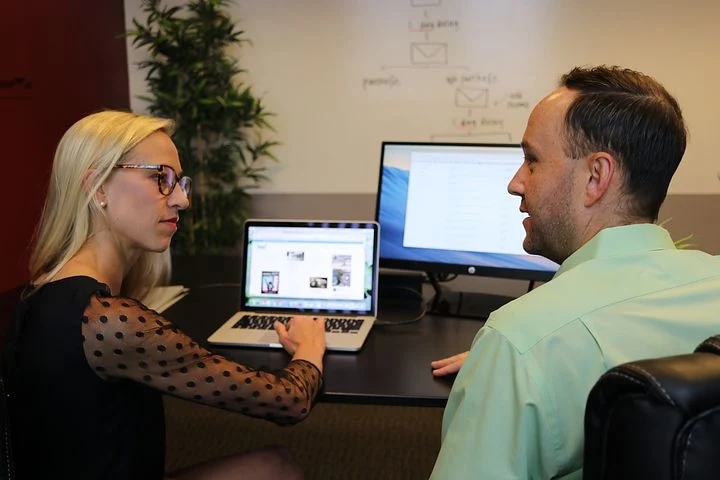Business
5 Ways to Boost Your Work from Home Employees’ Performance
Work from home presents very different challenges to what we experience in the office, and it does take some time to adapt.

With more and more people working from home these days, its important businesses help their employees find ways of doing their best work away from the office. Work from home presents very different challenges to what we experience in the office, and it does take some time to adapt.
Your business can work with its employees to ensure that the adaption period is as fast as possible, and these five tips can help.
Table of Contents
1. Invest in the Right Software
If your employees do their best work, they need access to everything they would have in the office. With cloud technology, this is very achievable, but you’ve got to make sure you’re investing in the right technology.
If work from home is going to be a big part of your business, then this software is vitally important. The more connected your employees are, the better they will be able to do their jobs.

2. Clear Communication
One thing you are in control of is your communication. When you have got everyone working in one office, communication is a little bit easier, but with everyone spread out, you have got to make sure you are working on your messaging.
You still need your employees to work as part of a team even if they are not all in the same place, and to do this takes excellent communication. Set the example with your messaging and encourage others to follow your lead.
3. Encourage Breaks
As an employer, it can be hard to let go of control, but you have got to allow your employees to take care of their scheduling. Often, when people start working from home, they feel a responsibility to be doing all day without rests.
However, if they are going to do their best work, then your employees have to split their day up and have plenty of breaks. Whether that means going out for a walk, visiting the Unibet site, or reading a book, it allows them to reset their attention and come back to work healthier.

4. Help Your Employees Create a Schedule
One of the benefits of working from home might be that you get to set your schedule, but its essential people do still have a routine.
When you are working from home, there can be many distractions that aren’t present in an office, but its essential employees don’t allow these to get them out of their routine. People work best when they have a schedule, and home workers need to maintain one just as office workers do.
5. Be Aware of the Work-Life Balance
One of the difficulties with working at home is that the line between work and personal life becomes even more obscure. Your employees might feel pressure to sacrifice their personal experience to focus on their work, but this is not beneficial for you or them.
Employees need the right balance between work and personal life to be successful, and you want to try and encourage this.
Business
Navigating the Process of Selling Deceased Estate Shares
This article aims to provide a comprehensive guide to selling shares from a deceased estate. Process of Selling Deceased Estate Shares.

Table of Contents
1. Understanding the Basics of Selling Deceased Estate Shares
Dealing with a deceased estate can be a challenging and emotional process, especially when it comes to handling financial assets like shares. This article aims to provide a comprehensive guide to selling shares from a deceased estate.
2. What are Deceased Estate Shares?
Deceased estate shares refer to the stocks and shares that were owned by an individual who has passed away. These shares become part of the deceased’s estate and are subject to the terms of their will or estate plan.
3. The Importance of Valuing the Shares
The first step in selling deceased estate shares is to obtain a current valuation. This valuation is crucial for several reasons: it helps in distributing the estate among beneficiaries, it may be necessary for tax purposes, and it gives an idea of the market value of the shares.
4. Legal Requirements and Executor Responsibilities
The executor of the estate plays a pivotal role in the management and distribution of the deceased’s assets. This section will cover the legal responsibilities and steps the executor needs to take to lawfully sell the shares.
5. Obtaining Probate
Before any action can be taken with the shares, it’s often necessary to obtain probate. Probate is a legal process that confirms the executor’s authority to deal with the deceased’s assets.
Transferring Shares into the Executor’s Name
Once probate is granted, shares may need to be transferred into the name of the executor. This process varies depending on the company and the type of shares.
6. The Process of Selling Shares
After completing legal formalities, the executor can proceed with selling the shares. This section will outline the steps involved in this process, including choosing a brokerage or financial service, understanding market conditions, and making informed decisions.
Deciding on the Right Time to Sell
Timing can significantly impact the returns from selling shares. Executors need to consider market conditions and financial advice to determine the best time to sell.
Completing the Sale
This subsection will detail the actual process of selling shares, including placing orders, handling transaction fees, and ensuring all regulatory requirements are met.

7. Navigating Tax Implications and Reporting
Managing tax obligations is a critical aspect of selling deceased estate shares. This section will explain the potential tax implications and the importance of accurate reporting for both capital gains tax and inheritance tax considerations.
Understanding Capital Gains Tax Responsibilities
When shares are sold, any profit made from the time of the deceased’s passing to the sale date may be subject to capital gains tax. Executors need to be aware of these implications and plan accordingly.
Inheritance Tax Considerations
In some jurisdictions, the value of the deceased estate’s shares might impact inheritance tax calculations. It’s essential for executors to understand these aspects in order to ensure compliance with tax laws.
8. Common Challenges and How to Overcome Them
Selling deceased estate shares can present unique challenges. This section will discuss common issues such as disputed wills, fragmented information about the shares, and market volatility.
Dealing with Disputed Wills and Beneficiary Disagreements
Disputes over the will or disagreements among beneficiaries can complicate the process. Executors must handle these situations delicately and legally.
Managing Market Volatility
Shares can be subject to market fluctuations. Executors should be prepared for this volatility and may need to consult financial advisors to navigate these waters effectively.
9. Tips for Executors Handling Deceased Estate Shares
This section will provide practical advice for executors, including the importance of seeking professional advice, keeping thorough records, and communicating clearly with beneficiaries.
Seeking Professional Financial and Legal Advice
The complexity of selling shares from a deceased estate often necessitates professional advice. This can range from legal counsel to financial advisory services.
Record Keeping and Communication with Beneficiaries
Maintaining transparent and thorough records is crucial. Executors should also prioritize clear and consistent communication with all beneficiaries to avoid misunderstandings.
Conclusion
Selling shares from a deceased estate is a responsibility that requires careful attention to legal, financial, and interpersonal dynamics. By understanding the process, staying informed about tax obligations, and tackling challenges head-on, executors can fulfill their duties effectively and respectfully.
-

 Instagram4 years ago
Instagram4 years agoBuy IG likes and buy organic Instagram followers: where to buy them and how?
-

 Instagram4 years ago
Instagram4 years ago100% Genuine Instagram Followers & Likes with Guaranteed Tool
-

 Business5 years ago
Business5 years ago7 Must Have Digital Marketing Tools For Your Small Businesses
-

 Instagram4 years ago
Instagram4 years agoInstagram Followers And Likes – Online Social Media Platform
















